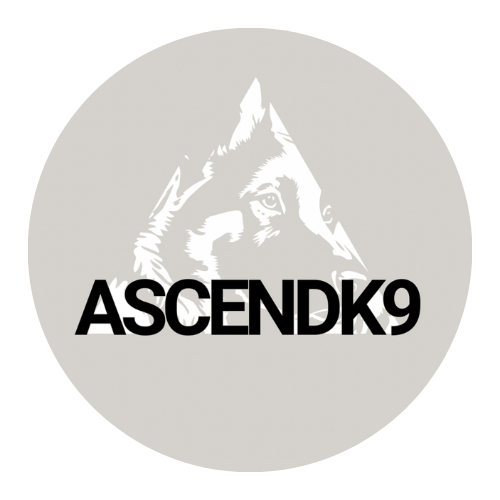Marker Words in Dog Training: What Is a Marker Word and How to Use Terminal Marker Words Effectively
Clear communication is the foundation of effective dog training. One of the most powerful tools you can use is a dog marker word. Understanding what a marker word is in dog training, and how to implement both terminal marker words and continuation markers, can drastically improve your dog’s focus, responsiveness, and learning speed.
Terminal marker = behaviour complete. Continuation marker = keep going!
What Is a Marker Word in Dog Training?
A marker word is a short, consistent word used to mark the exact moment your dog performs the desired behaviour. Marker words signal that a reward is coming, usually food, allowing your dog to understand precisely what behaviour you want them to repeat.
Common examples:
Terminal marker words: “Yes,” “Done”
Continuation markers: “Good,” “Keep going”
Negative markers: “No,” “Ah-ah”
By using marker words consistently, you provide clear communication that helps your dog learn faster and with less frustration.
Terminal Marker Word: Signalling Completion
A terminal marker word indicates that the behaviour is complete and that your dog is about to receive their reward.
Key points:
Marks the end of a behaviour
Signals the dog can break position or come for the reward
Most commonly used terminal marker word: “Yes”
Trainer Tip: Using a terminal marker too early may cause your dog to break position before fully completing a command. Pairing with a continuation marker can help extend duration if needed.
Continuation Marker: Encouraging Duration and Focus
A continuation marker tells your dog: “You’re doing well - keep going!” without ending the behaviour.
Popular words: “Good,” “Keep going”
Benefits of using continuation markers:
Encourages dogs to maintain position at a distance
Builds duration for commands like sit-stay, down-stay, and heel
Reduces premature breaking of behaviour while maintaining engagement
Pro Tip: Choose a continuation marker that sounds different from your terminal marker word to avoid confusion.
Use a negative marker to show your dog a behaviour won’t earn a reward.
Negative Marker Words
Negative markers indicate that the dog has not performed the behaviour correctly. A negative marker word communicates to your dog that the behaviour they have offered is incorrect or not what you asked for, and therefore they will not receive the reward. When used effectively, negative markers help your dog learn boundaries without causing fear or anxiety.
Common examples include:
“No”
“Ah-ah”
Key principles for using negative markers:
Keep it short and clear - Your dog should be able to immediately recognise that the behaviour is wrong.
Use the marker at the moment of the mistake - Timing is crucial. Give the negative marker the instant the behaviour occurs incorrectly, so your dog understands the connection.
Do not follow with punishment - Avoid yelling, tugging, or physical corrections. The marker alone communicates “no reward,” and the dog should try again.
Redirect immediately - After marking a mistake, guide your dog back to the correct behaviour. For example, repeat the command, use a hand signal, or offer a lure.
Example scenario:
Your dog sits but lifts a paw to get up before holding a full sit-stay.
Say your chosen negative marker word: “Ah-ah” immediately.
Reset the position calmly: Ask the dog to sit again.
Reward with your terminal marker word (“Yes”) when the behaviour is completed correctly.
Why negative markers work:
They teach boundaries without physical corrections.
They prevent reinforcement of incorrect behaviour, which can slow learning.
Combined with terminal and continuation markers, they create a complete communication system your dog can reliably understand.
Trainer Tip: If your dog seems confused or demotivated by a negative marker, ensure you are:
Using rewards when correct behaviour occurs
Balancing negative markers with frequent positive reinforcement
Keeping training sessions short and focused
By integrating negative marker words thoughtfully, you can help your dog learn the difference between correct and incorrect behaviours, creating a more responsive and confident companion.
Pairing markers with food rewards strengthens positive associations.
Practical Tips for Using Dog Marker Words
Pair markers with high-value food rewards - Reinforces the behaviour effectively.
Use clear, consistent words - Your dog must differentiate between terminal and continuation markers.
Mark the precise moment - Timing is critical for learning.
Combine with hand signals - Enhances communication.
Start in low-distraction environments - Gradually increase difficulty to proof behaviours.
FAQs About Marker Words in Dog Training
Q: What is a marker word in dog training?
A: It’s a verbal cue that marks correct behaviour and signals that a reward is coming.
Q: Can I use any word as a dog marker word?
A: Yes, but it should be short, consistent, and clearly distinguishable from other commands.
Q: Why do I need a terminal marker word?
A: Terminal marker words indicate completion of a behaviour and help your dog know when they can stop or move to receive the reward.
Q: How does a continuation marker help?
A: It lets your dog know they’re performing correctly but should maintain the behaviour until the terminal marker is given.
Why Marker Words Work
Using marker words improves communication, focus, and responsiveness. Dogs learn faster when they clearly understand exactly which behaviour earned the reward. This method is effective for:
Puppy training - Teaching early communication and engagement
Obedience training - Improving consistency and reliability
Distance training - Rewarding correct behaviour from afar
Remember: behaviour you reward is behaviour your dog is more likely to repeat. Marker words make that reward immediate and precise.
Pairing markers with food rewards strengthens positive associations.
Need Help Implementing Marker Words?
At ASCENDK9, we teach dog marker word systems in:
Group obedience classes
Private or virtual lessons
Puppy training sessions
Utilising a marker word system helps you to improve communication, motivation, and learning with your dog or puppy.
Serving Harlow, Essex, Bishops Stortford, Hertfordshire and surrounding areas.
Book a session today for coaching on how to use marker words effectively and strengthen your dog’s understanding and confidence.





